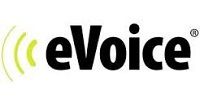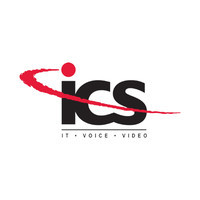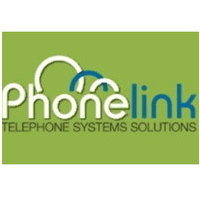What Is Enterprise Phone System?
A complex and all-inclusive telecommunications solution created especially for companies or organizations is referred to as an enterprise phone system. Call management, voicemail, automated attendants, and interaction with other communication tools like email and instant messaging are just a few of the functions that these systems usually offer. Enterprise phone systems are made to manage high call volumes and user counts, in contrast to personal or small business phone systems.
Additionally, because of its tremendous scalability, companies can add or remove users and services as their needs evolve. Simplifying internal communication procedures is one of the main advantages of a company phone system. Employees may handle incoming calls more effectively and get the right person or department quickly with tools like call routing and automated attendants.
Additionally, a lot of business phone systems now come with sophisticated capabilities like video conferencing and smartphone integration due to the growing popularity of remote work and the demand for flexible communication. This makes it possible for workers to keep in touch and work together efficiently from wherever.
It's critical to comprehend the unique communication requirements of your company when contemplating an enterprise phone system and select one that has the appropriate features and functionalities. When selecting your choice, it's also critical to take into account elements like cost, customer service, and dependability.
What Are The Recent Trends In Enterprise Phone System?
Enterprise phone systems have seen major developments and trends in recent years to accommodate enterprises' constantly changing communication requirements. The primary goals of these trends are to increase user experience, efficiency, and adaptability. Before making a purchase, let's examine some of the most important developments in business phone systems that every buyer should be aware of.
1. Cloud-Based Solutions: The use of cloud-based solutions is one of the most noticeable developments in business phone systems. These systems do not require costly on-premise gear and software because they host and administer phone services via internet connectivity. Businesses can benefit from a more affordable, adaptable, and accessible communication option thanks to the cloud.
2. Unified Communications: The merging of many communication channels, including email, messaging, video, and voice, into a single platform is known as unified communications (UC). Because it allows users to access all communication tools in one location instead of alternating between several programs, this trend is becoming more and more popular. It is the perfect option for contemporary enterprises since it facilitates smooth collaboration.
3. Mobility: As remote work has become more popular, business phone systems are also providing additional mobility options. These consist of softphone apps, mobile phone integration, and remote voicemail and call routing access. These characteristics foster a more adaptable and effective work environment by enabling employees to remain connected and productive from wherever.
4. Artificial Intelligence (AI): In the business industry, AI-powered phone systems are growing in popularity. These technologies track calls, analyze customer data, and offer real-time insights to enhance customer interactions using artificial intelligence. Businesses can use AI to optimize customer service and tailor it to each individual's or group's needs.
5. Bring Your Own Device (BYOD): Using personal devices for work is becoming more and more common in today's workplace. Employees can work from anywhere at any time by using their smartphones to access company phone systems through BYOD. Because it encourages flexibility, cost savings, and better productivity, this trend benefits both firms and people.
Benefits Of Using Enterprise Phone System
For companies of all sizes, an enterprise phone system also referred to as a corporate phone system—is an essential communication tool. It enables a company to manage its internal and external communication requirements with a centralized, fully integrated system. The advantages of using an enterprise phone system will be discussed in this buyer's guide, which will also assist you in seeing why it's a wise investment for your company.
1. Increased Productivity And Efficiency: Using a business phone system has many advantages, including increased productivity and efficiency. No matter where they are, staff members can simply access and manage their voicemails, messages, and calls from a single device when a system is centralized. This simplifies communication procedures and does away with the necessity for several phone numbers or devices. Additionally, it makes collaboration capabilities like group messaging, conference calls, and call routing possible, which significantly boosts team productivity and efficiency.
2. Financial Savings Your company may save money by putting in place an enterprise phone system. Cost-effective calling and messaging options are made possible by a single system, rather than having to pay for numerous phone lines and devices. Additionally, it saves you time and money by removing the need for individual system upgrades and maintenance. Additionally, companies can save long-distance and international calling expenses by utilizing tools like call forwarding and virtual numbers.
3. Flexibility And Scalability: Your company's communication demands will expand along with it. An enterprise phone system is flexible and scalable to meet the evolving needs of your company. Businesses may readily adjust to growth and remote work since additional lines and users can be added without requiring any changes to the physical infrastructure. Employees can use their mobile devices to communicate from any location thanks to the mobile apps that many business phone systems offer.
4. Improved Customer Support: Any organization must have effective consumer communication. By giving customers features like IVR (Interactive Voice Response), voicemail to email, and call recording, you can enhance their experience with a business phone system and make sure their questions are answered quickly. Furthermore, services like music on hold, call routing, and call queuing keep consumers interested and cut down on wait times, which increases customer satisfaction.
5. Enhanced Functionality and Integration: To improve company communication, enterprise phone systems provide a number of cutting-edge features and integration choices. These capabilities, which enable businesses to obtain important insights and make data-driven decisions, include video conferencing, call analytics, auto-attendants, and call transcription. Additionally, communication processes can be further streamlined through interaction with other company technologies like ERP (Enterprise Resource Planning) and CRM (Customer Relationship Management) systems, increasing overall productivity and efficiency.
Important Factors To Consider While Purchasing Enterprise Phone System?
There are a lot of things to think about when buying an enterprise phone system to make sure you're getting the best deal for your company. After all, your organization's production and efficiency can be significantly impacted by your phone system, which is an essential communication tool. Here are some crucial elements to take into account when buying a corporate phone system in order to assist you go through the available options and make an informed choice:
1. Scalability: As your company expands, you'll need a phone system that can handle the growing needs. Selecting a system that can readily handle more users, regions, and features without requiring costly updates or significant disruptions is crucial.
2. Reliability And Support: Any organization needs a dependable phone system. Seek out a supplier who has a track record of delivering uninterrupted service and who can guarantee a high uptime. Make sure they also have a robust support structure in place and provide technical help around-the-clock in case of problems.
3. Features And Functionality: Before choosing a phone system, it's critical to evaluate its features and functionality because every organization has different communication requirements. Call forwarding, call recording, voicemail, automated attendants, and mobile integration are a few essential features to search for.
4. Integration With Other Platforms: To optimize their operations in the current digital era, many firms rely on a variety of software platforms. It is crucial to make sure that an enterprise phone system can easily interact with other systems, including email, other communication tools, and customer relationship management (CRM) software.
5. Cost And Budget: Depending on the supplier and the services offered, a business phone system's price can vary significantly. Knowing exactly how much you are spending and what you are receiving for it is crucial. Seek out a supplier with clear pricing and plans that can be adjusted to fit your needs and budget.
6. User-Friendliness: Selecting a phone system that is simple to use and requires little training for your staff is essential. This will guarantee a seamless transfer to the new system in addition to saving time and money.
7. Security Measures: Any organization should prioritize security given the increase in cyberthreats. To safeguard your private communication information, be sure the phone system you use includes robust security features like encryption and secure connection protocols.
8. Upcoming Updates And Upgrades: Since technology is always changing, it's critical to pick a phone system supplier who is dedicated to keeping abreast of the most recent developments. This will guarantee that, throughout time, your system will continue to satisfy the demands of your company. You can make an informed choice that will help your company in the long run by taking these crucial aspects into account when buying a corporate phone system. To determine which provider is ideal for your company, take the time to investigate and contrast various providers and their offerings.
What Are The Key Features To Look For In Enterprise Phone System?
Any organization must have an effective and dependable communication system in the fast-paced commercial environment of today. A business can connect and manage numerous internal and external phone lines with an enterprise phone system, commonly referred to as a PBX (Private Branch Exchange) system. The communication skills and general success of your company can be affected by a number of important factors that you should take into account when selecting an enterprise phone system.
1. Scalability: This is one of the most important characteristics to search for in an enterprise phone system. Your company will require more communication as it expands. Therefore, it should be possible for your phone system to handle the addition of new lines and users without requiring major changes or causing any delays.
2. Advanced Call Routing: A dependable enterprise phone system should have sophisticated call routing capabilities that enable calls to be promptly routed to the appropriate individual or division. This guarantees that clients may get in touch with the right person without any delays or misunderstanding, which is especially important for big businesses with several divisions.
3. Unified Communication: UC unifies many channels of communication, including messaging, video, voice, and conferencing, into a single platform. This function is essential for an enterprise phone system because it facilitates communication and enhances teamwork inside your company.
4. Call Management: Strong call management capabilities, including call recording, call monitoring, and call reporting, should also be included in an enterprise phone system. These characteristics offer insightful information about your communication styles and assist in pinpointing areas in need of development.
5. Security: When selecting an enterprise phone system, security should be the first consideration, just like with any other technology. To safeguard the sensitive data of your business, look for systems with robust encryption processes and safe user authentication techniques.
6. Integrations: A lot of companies conduct their operations using a variety of tools and applications. You should be able to easily integrate these technologies with your enterprise phone system. A more simplified and effective communication procedure is made possible by this.
7. Quality Of Support (QoS): For companies that mostly rely on phone calls for customer support and sales, QoS is an essential element that guarantees great call quality. In order to prevent problems like dropped calls and sluggish audio, look for an enterprise phone system with QoS features.
8. Mobility: Mobility is more crucial than ever in the modern workplace. To ensure that staff members can stay connected even when they are not at their desks, your enterprise phone system should have a strong mobile app that enables them to make and receive calls from their mobile devices.
9. Customer Service: Lastly, selecting a supplier with dependable and prompt customer service is crucial when making an investment in an enterprise phone system. This minimizes any interruptions in your communication flow by guaranteeing that any problems or technical challenges are resolved quickly. All things considered, by taking these important factors into account, you can select the ideal enterprise phone system for your company that will satisfy your communication requirements, foster expansion, and improve teamwork and output.
Why Do Businesses Need Enterprise Phone System?
Any organization, regardless of size or industry, needs a dependable and effective communication system. An enterprise phone system can help with that. It is a feature-rich and reliable phone system made especially for businesses to manage their communication requirements effectively. The following are the main justifications for why companies require an enterprise phone system:
1. Advanced Call Management: Automated call routing, call forwarding, and call queuing are just a few of the advanced call management services that an enterprise phone system provides. By ensuring that every call is immediately answered and routed to the appropriate individual, these features enhance productivity and customer satisfaction.
2. Unified Communication: Organizations can create a unified communication platform by integrating their phone system with other communication tools like video conferencing, instant messaging, and emails using an enterprise phone system. This makes it possible for workers to communicate effectively and easily from wherever.
3. Cost Savings: An enterprise phone system runs on the cloud, doing away with the need for costly hardware and specialized IT personnel, while traditional phone systems can be costly to build and maintain. Businesses eventually save a lot of money as a result of this.
4. Scalability: Businesses' communication requirements change as they expand. Because enterprise phone systems are so scalable, companies may easily add or remove lines and functions to accommodate their evolving needs.
5. Increased Productivity: Voicemail, call recording, and call analytics are just a few of the services that an enterprise phone system offers to increase productivity. Better staff collaboration and communication are made possible by these qualities, which eventually boost output and efficiency.
6. Professional Image: Customers and clients perceive organizations with a dedicated phone system as more professional. Additionally, it provides options for call routing, hold music, and personalized welcomes, leaving a favorable and enduring impression on callers.
7. 24/7 Availability: Businesses can maintain a constant line of communication with their clients by implementing an enterprise phone system. Call forwarding to mobile devices is made possible by this method, guaranteeing that no crucial call is missed, even after regular business hours.
How Much Time Is Required To Implement Enterprise Phone System?
A number of variables, including the company's size, the system's complexity, and the resources available, might affect how long it takes to establish an enterprise phone system. The system's complete implementation and operation can take anywhere from one week to three months on average. The size of the business is one of the primary variables that can impact the implementation schedule.
Because implementing the system requires integrating and educating a greater number of users, larger businesses with different departments and locations may need more time. Another important consideration is the system's complexity. Advanced features and integrations included in some enterprise phone systems may require more setup and configuration time.
To gain a better knowledge of the implementation timetable, it is imperative to evaluate the system's complexity throughout the selection process. Another important consideration in the implementation schedule is the availability of resources. The process can be finished faster if the business has an internal IT staff with phone system implementation experience. The organization may have to depend on the vendor or a third-party implementation team if it lacks the requisite resources, which could lengthen the schedule.
What Is The Level Of Customization Available In Enterprise Phone System?
Customization is essential when selecting a business phone system to satisfy an organization's unique communication requirements. Depending on the manufacturer, an enterprise phone system's degree of customization varies, but in general, there are a number of alternatives that let companies customize their phone system to meet their particular needs.
The option to choose various phone models and features for every employee according to their function and tasks is one of the main customization capabilities. This can include call forwarding, call routing, and other voicemail settings. To better meet their communication needs, organizations can also select from a range of hardware options, including softphones, desk phones, and cordless phones.
Integrating with current software and systems is another facet of customization. This makes it possible for teams and departments to collaborate and communicate easily. For instance, combining a customer relationship management (CRM) program with the phone system can simplify client communications and yield insightful information.
Additionally, a lot of business phone systems provide branding and customized greeting choices, allowing companies to provide a polished and dependable image to their clients. Businesses can alter the call handling and routing settings to guarantee that calls are sent to the right person or department. This can involve establishing distinct call lines, automated attendants, and time- or location-based routing.
Additionally, the degree of personalization extends beyond hardware and functions. Depending on their requirements and preferences, businesses can also select between an on-premise or cloud-based phone system. The degree of customization that is possible may be impacted by this choice, and on-premise solutions may need greater technical know-how.
Which Industries Can Benefit The Most From Enterprise Phone System?
Businesses in a variety of industries can profit greatly from enterprise phone systems' great adaptability. The following sectors stand to gain the most from the deployment of a corporate phone system:
1. Office And Corporate Settings: Effective internal communication is essential to a company's success in the fast-paced corporate environment of today. Call forwarding, conference calling, and voicemail are just a few of the capabilities that enterprise phone systems provide to help staff members keep in touch and work together effectively.
2. Customer Service/Support: An enterprise phone system can significantly improve the overall customer experience for sectors like retail, banking, or hotels that mostly depend on customer service. Customers are more satisfied when they can quickly contact the appropriate department or representative thanks to features like call routing and automated menus.
3. Healthcare: Effective communication is essential to patient care in the healthcare sector. Physicians and nurses can access patient data while on the phone by integrating a corporate phone system with medical record systems. HIPAA compliance is also guaranteed by features like secure messaging and call recording.
4. Education: An enterprise phone system has many advantages for educational establishments, including colleges, universities, and schools. Teachers and school administrators can communicate more effectively by using tools like group messaging and calling to connect and enlighten parents and students.
5. Legal: A dependable phone system is necessary for law firms, lawyers, and other legal professionals that frequently handle a large volume of calls. With capabilities like voicemail transcription and call routing, enterprise phone systems make it simpler for attorneys to handle their calls, particularly during peak hours.
6. Government: To manage sensitive data and stay in touch with their constituents, government agencies and organizations require a safe and dependable phone system. Features like secure messaging and call encryption provided by a corporate phone system guarantee the privacy of communications.
7. Financial Services: Security and confidentiality are crucial in the financial sector. Secure messaging and call encryption are two capabilities that enterprise phone systems can offer to protect customer information. Financial firms can also use advanced call analytics to monitor and examine their call data in order to make better decisions.
Conclusion
To sum up, any organization must make the critical choice to invest in an enterprise phone system. It boosts client interactions as well as internal communication, which eventually results in more profitability and productivity. Prioritize your business needs and financial constraints while evaluating various phone system solutions in order to identify the best fit. Scalability, sophisticated call handling, mobile compatibility, and integration with other crucial tools are aspects to look for.
You can avoid future headaches and save money by taking the time to carefully investigate and evaluate different vendors. To make sure you are getting a trustworthy and reputable solution, don't be scared to request recommendations and demos. Remember that the success of your new phone system depends on how it is implemented. To guarantee a seamless transition, make sure you have a well-defined plan in place and include all relevant parties.
All things considered, a corporate phone system is a wise investment that can significantly help your company. You can operate your business with confidence and deliver first-rate customer service if you have the proper structure in place. Thus, spend some time thoroughly weighing your options and selecting a system that best suits your requirements.














